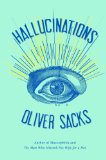new book – ‘On Looking: Eleven Walks with Expert Eyes’ by Alexandra Horowitz
January 8, 2013
On Looking: Eleven Walks with Expert Eyes by Alexandra Horowitz (Scribner, 2013)
Book description from the publisher:
From the author of the giant #1 New York Times bestseller Inside of a Dog comes an equally smart, delightful, and startling exploration of how we perceive and discover our world.
Alexandra Horowitz’s brilliant On Looking: Eleven Walks with Expert Eyes shows us how to see the spectacle of the ordinary—to practice, as Sir Arthur Conan Doyle put it, “the observation of trifles.” On Looking is structured around a series of eleven walks the author takes, mostly in her Manhattan neighborhood, with experts on a diverse range of subjects, including an urban sociologist, the well-known artist Maira Kalman, a geologist, a physician, and a sound designer. She also walks with a child and a dog to see the world as they perceive it. What they see, how they see it, and why most of us do not see the same things reveal the startling power of human attention and the cognitive aspects of what it means to be an expert observer.
As the million-plus readers of Inside of a Dog have discovered, Alexandra Horowitz is charmingly adept at explaining the mysteries of human perception. Trained as a cognitive scientist, she discovers a feast of fascinating detail, all explained with her generous humor and self-deprecating tone. On Looking presents the same engaging combination, this time in service to understanding how human beings encounter their daily worlds and each other.
Page by page, Horowitz shows how much more there is to see—if only we would really look. On Looking is nutrition for the considered life, serving as a provocative response to our relentlessly virtual consciousness. So turn off the phone and other electronic devices and be in the real world—where strangers communicate by geometry as they walk toward one another, where sounds reveal shadows, where posture can display humility, and the underside of a leaf unveils a Lilliputian universe—where, indeed, there are worlds within worlds within worlds.
Alexandra Horowitz’s On Looking confirms her place as one of today’s most illuminating observers of our infinitely complex world.
See also: Book website







